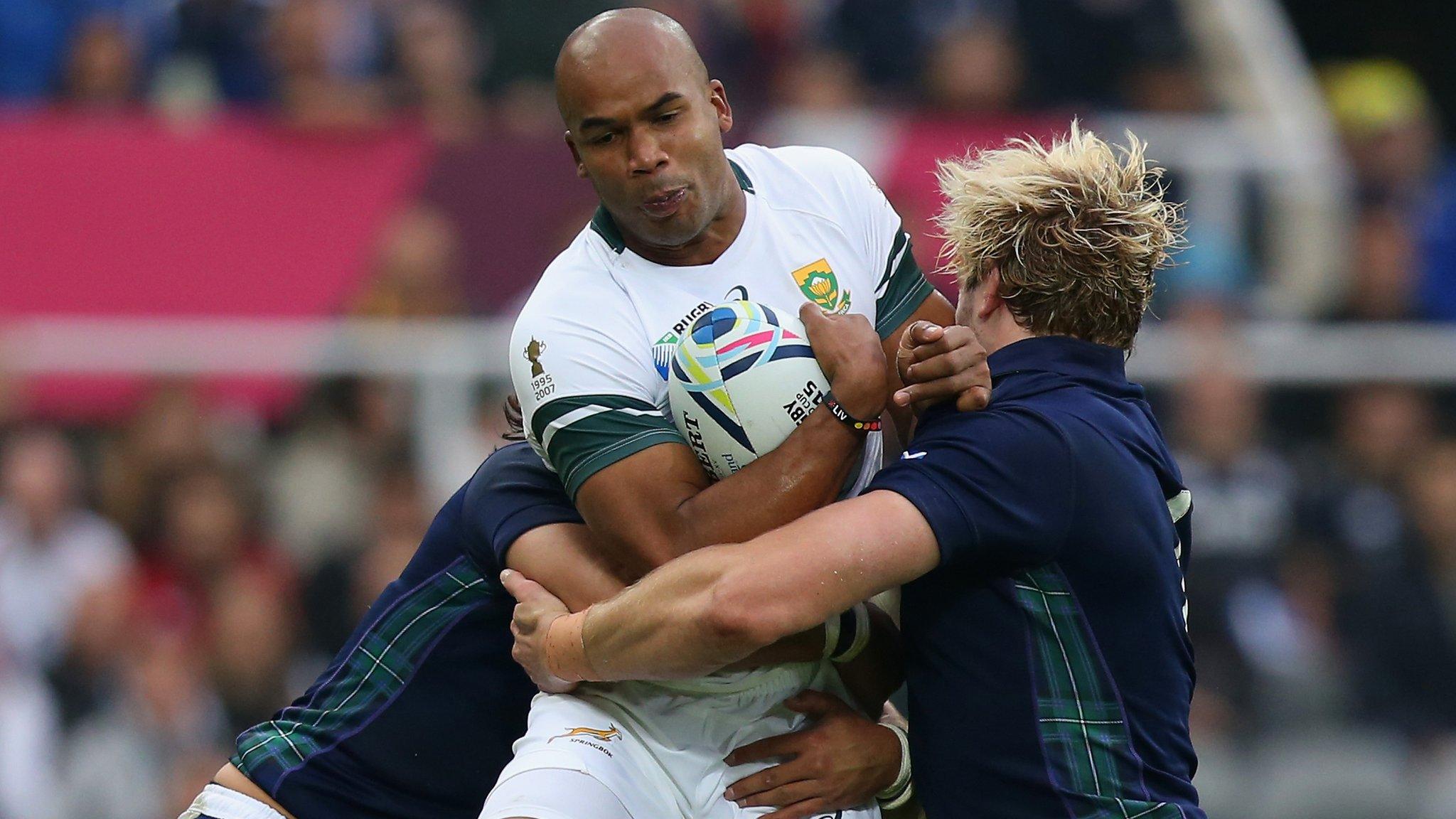Rugby World Cup 2015: Mike Blair analyses Scotland loss to Boks
- Published
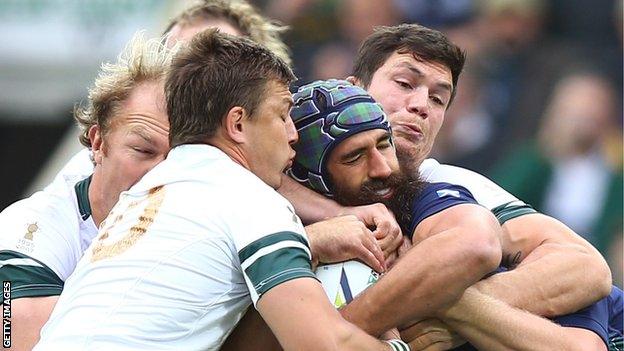
Josh Strauss is smothered by the Boks in Newcastle
Mulling over Scotland's 34-16 World Cup defeat by South Africa, the main thing that springs to mind is the Boks' physicality.
They got the better of Scotland at the line-out maul and in contact both from an attacking and defensive perspective.
The saying "a good big 'un will always beat a good little 'un" fits well with how the game unfolded. They were a bit bigger, a bit more powerful and, when the tactics on the ball were similar, there was only going to be one winner.
The back five of the South African scrum must be the biggest to have set foot on an international pitch and they were dynamic with it. Scotland didn't play poorly, they were just outmuscled.
Within touching distance... briefly
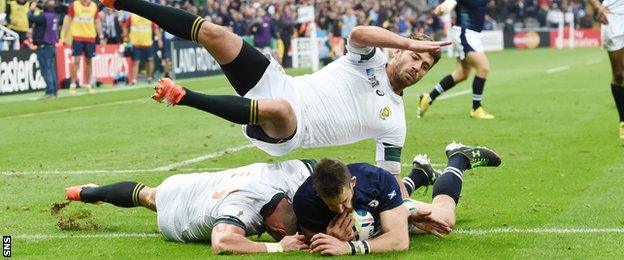
Tommy Seymour's try for Scotland was the result of a thrilling move from their own half
Scotland deserve great credit for the way they got back to within a score of their opponents having been 20-3 down at half-time.
Tommy Seymour's try was brilliant. Duncan Weir's read of Handre Pollard's pass, the catch itself, the awareness of where the defenders were and the offload were excellent, and Tim Visser manipulated his basketball style pass to great effect for the score.
There was a buzz around the ground that the storm had been weathered and this was Scotland mounting their rearguard action.
The loss of the subsequent kick-off was a huge momentum killer, though, that resulted in a drop-goal for South Africa a minute later. There were two errors against the Japanese from kick-offs, too, and all three were unforced.
More from rugby: |
|---|
For the latest rugby union news, follow @bbcrugbyunion, external on Twitter |
Kick-offs, the so-called 'third set-piece', are crucial and after scoring points you need to consolidate and make sure the next time your opponents touch the ball is in their own half.
The sin-binning of captain Greig Laidlaw followed but this seemed to galvanise the Scots and through a Duncan Weir penalty they were back within a score. Again, though, within one minute, the deficit was 10 points as an unforced penalty was conceded for not rolling away in the tackle. Another momentum killer.
Release the backs
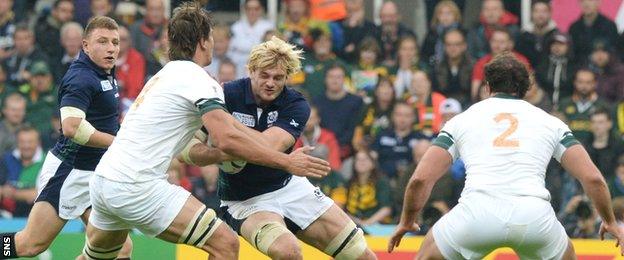
Scotland forward Richie Gray takes the brunt of a tackle by South Africa's 6ft 8in lock Eben Etzebeth, as stand-off Duncan Weir watches on
When the game broke up in the final quarter it suited Scotland more. They started playing wider, with the backs being released behind the forwards and didn't allow the huge South African forwards the opportunity to disrupt ball in the close-quarter contests. It became slightly less of an arm-wrestle.
This does appear to be tactical as we have seen it in the last three or four Scotland matches - use the forward option predominantly for the first 50 minutes and then, as the defence begins to fatigue, the backs are released more.
The problem is when you are being dominated in the close-quarter stuff you have to adapt a bit and I think it maybe took a little too long to change to the wider options.
It's a moot point, though, as Scotland didn't have enough possession or quality ruck ball, certainly in the first half, to enable them to vary their attacking game.
A loss, but we've seen enough over the past three matches to know that this team is capable of reaching the knock-out stages with a win against Samoa next week.
- Published4 October 2015

- Published3 October 2015

- Published3 October 2015
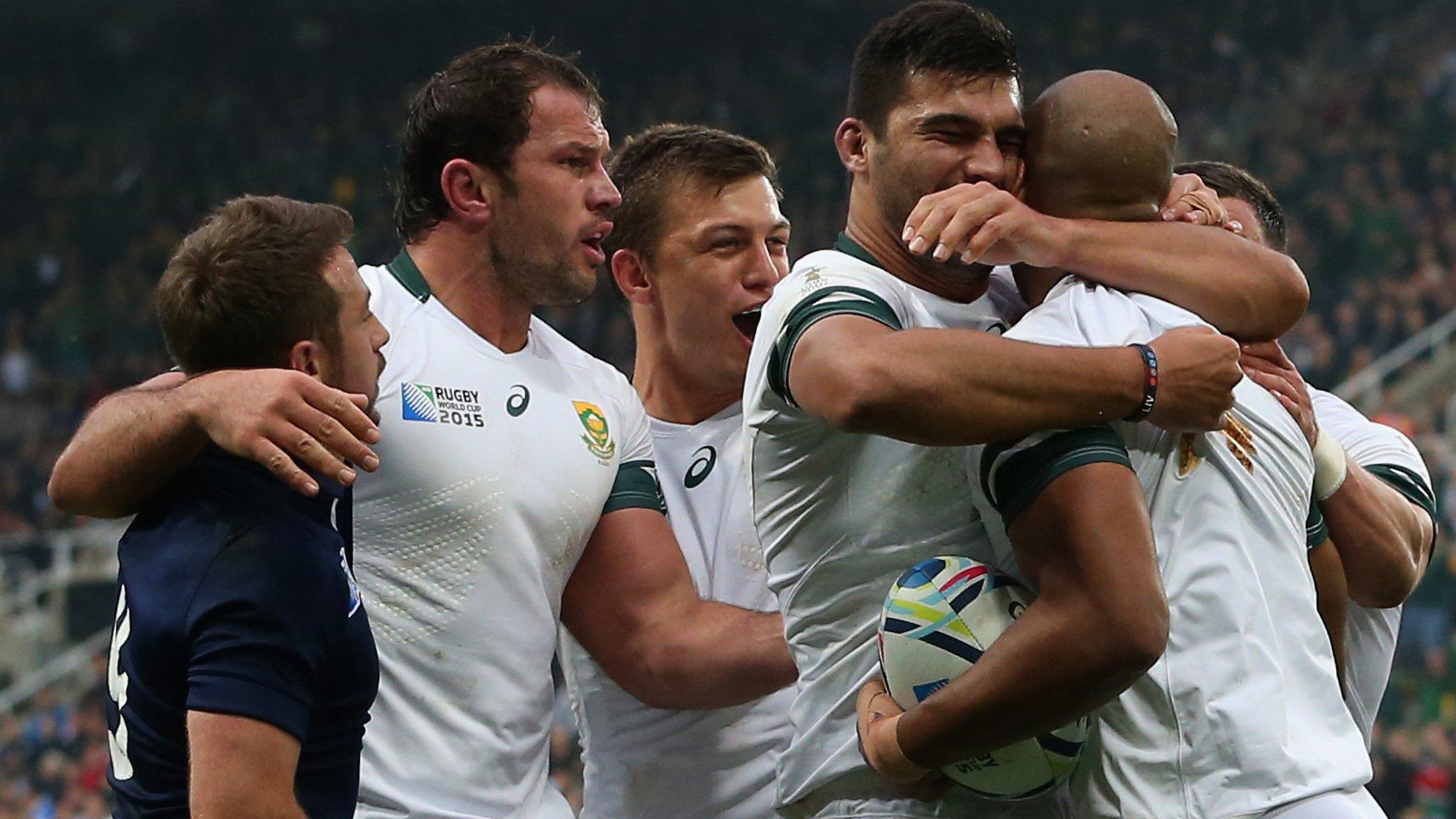
- Published3 October 2015
